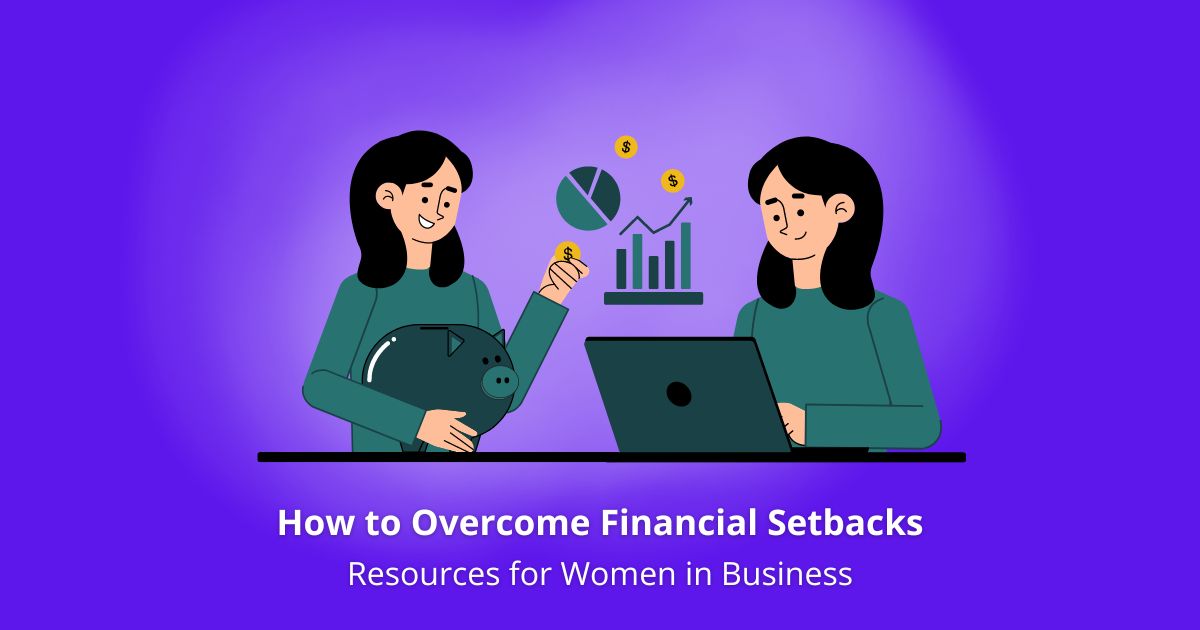Financial resilience is crucial for the sustainability of any business. It involves the ability to withstand economic shocks and recover from financial setbacks. For women entrepreneurs, building financial resilience often requires a multifaceted approach, combining financial literacy, strategic planning, and access to support systems.

One valuable resource in this journey is the Tax Law Advocates offers, which provides support through the IRS Hardship Program. This program is designed to help individuals and businesses experiencing financial difficulties manage their tax liabilities.
Financial Literacy: The Foundation of Financial Stability
The first and foremost aspect that is imperative in overcoming financial hitches is the element of financial education. Women entrepreneurs should know about the budgeting process, cash flow management, and the basics of financial planning to be ready for possible difficulties. Today, you can find countless online courses, workshops, and seminars dedicated to women in business. These articles or educational documents can be beneficial for understanding how to manage money properly and avoid mistakes.
For instance, the National Women’s Business Council and Small Business Administration have specialized training and resources on financial management from which women entrepreneurs can benefit. Furthermore, more local community colleges and universities offer financial literacy and business management courses. It also emerges that women entrepreneurs could help by dedicating their time to such education since it empowers them to know how to deal with financial losses.
Building a Financial Safety Net
Another important measure that can help to cope with financial failures is creating an emergency financial reserve. This means putting money aside to cater for emergencies and establishing a safety margin, or buffer, against adverse economic conditions. It is essential to maintain emergency savings accounts and business contingency funds to ensure high levels of financial protection.
Women entrepreneurs should set aside money consistently and buy secure financial instruments with high liquidity. This approach makes it easy to account for the funds, as they are immediately accessible when required. Financial advisors can come in handy here, as they can advise on the best saving and investment mechanisms for women’s businesses.
Besides savings, there are other ways women entrepreneurs can enhance their funding sources to boost the safety net. There is funding in grants, low-interest loans, and venture capital. Different institutions can help obtain these financial resources; they include the Women’s Business Enterprise National Council (WBENC) and the National Association of Women Business Owners (NAWBO).
Leveraging Government Programs and Resources
Governments can also address financial crises through Women entrepreneurs’ programs and funds. For instance, the IRS Hardship Program allows struggling businesses to be presented with options regarding payment of taxes that they owe. This program can enable female entrepreneurs to cope with tax expenses and direct their cash toward other areas vital for the business.
Also, the Small Business Administration (SBA) has numerous programs and services geared towards small businesses, including those owned by females. EIDL and PPP are two of the SBA’s most popular loan programs, which have assisted companies in their operations during difficult periods like the current pandemic. Women entrepreneurs should ensure that they are up-to-date with these and other government programs to grab any opportunities that may be available.
Seeking Professional Financial Advice
Dealing with financial difficulties is never easy; therefore, it is always wise to seek help from a competent financial expert. Professional financial advisors, accountants, and management consultants can help plan and execute financial management strategies and make the right business decisions. These professionals can also assist women entrepreneurs in considering potential threats and developing plans B and C in case of threat realization.
Furthermore, one can join professional working groups and business associations to tap into the pool of knowledge. Women entrepreneurs can benefit from networking with other women as they get encouragement, guidance, and possibly business leads. It is also very encouraging when one or several people learn from others who have gone through the same experience to get out of financial disasters.
Conclusion
Every businessperson experiences some level of financial loss at some point, including women entrepreneurs, but every business can be renewed if the right solution is sought. Several essential steps are involved in developing financial security, including learning, establishing a financial cushion, using government resources, and consulting with a professional.
Through careful planning and management, as well as the use of resources available currently, women entrepreneurs can overcome the financial difficulties they face and safeguard the future of their businesses.